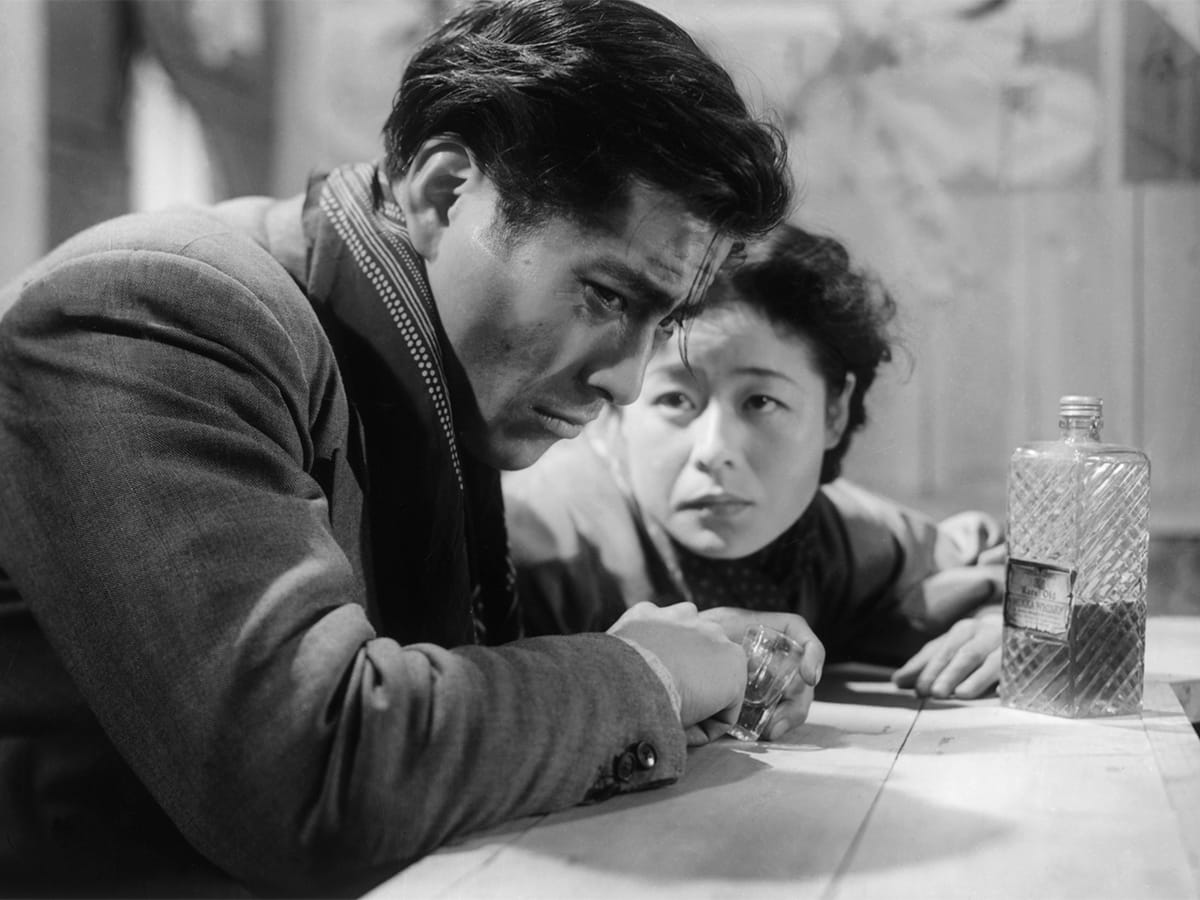Drunken Angel

In this powerful early noir from the great Akira Kurosawa, Toshiro Mifune bursts onto the screen as a volatile, tubercular criminal who strikes up an unlikely relationship with Takashi Shimura's jaded physician. Set in and around the muddy swamps and back alleys of postwar Tokyo, Drunken Angel is an evocative, moody snapshot of a treacherous time and place, featuring one of the director's most memorably violent climaxes.
Special Features
- New, restored high-definition digital transfer
- Audio commentary featuring Japanese-film scholar Donald Richie
- A 30-minute documentary on the making of Drunken Angel, created as part of the Toho Masterworks series Akira Kurosawa: It Is Wonderful to Create
- Kurosawa and the Censors, a new, 25-minute video piece that looks at the challenges Kurosawa faced in making Drunken Angel
- New and improved English subtitle translation
- PLUS: An essay by cultural historian Ian Buruma and excerpts from Kurosawa’s Something Like an Autobiography
New cover by Jock
Collector's Sets
Special Features
- New, restored high-definition digital transfer
- Audio commentary featuring Japanese-film scholar Donald Richie
- A 30-minute documentary on the making of Drunken Angel, created as part of the Toho Masterworks series Akira Kurosawa: It Is Wonderful to Create
- Kurosawa and the Censors, a new, 25-minute video piece that looks at the challenges Kurosawa faced in making Drunken Angel
- New and improved English subtitle translation
- PLUS: An essay by cultural historian Ian Buruma and excerpts from Kurosawa’s Something Like an Autobiography
New cover by Jock

Cast
- Takashi Shimura
- Doctor Sanada
- Toshiro Mifune
- Matsunaga
- Reizaburo Yamamoto
- Okada
- Michiyo Kogure
- Nanae
- Chieko Nakakita
- Nurse Miyo
Credits
- Director
- Akira Kurosawa
- Producer
- Sojiro Motoki
- Screenplay
- Keinosuke Uekusa
- Screenplay
- Akira Kurosawa
- Editing
- Akikazu Kono
- Cinematography
- Takeo Ito
- Lighting
- Kinzo Yoshizawa
- Music
- Fumio Hayasaka














